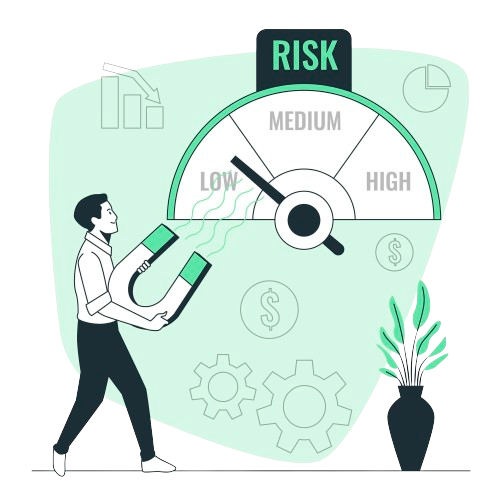Services
General Insurance Placement
We deal with all kind of General insurance Products With analyzing the proposal, we procure quotes from various Insurance Companies and help client to Place the Insurance portfolio.


Claims Management
Claims Management involves all the job starting right from claims intimation till the claims settlement as per underwritten policy terms. There are four major steps that have to be carried out in order to service a claim, and one of which is claims management. Following are the steps that are carried out while servicing a claim.
Claim Management Process
- Claims Intimation
- Claim Management
- Claim Settlement/rejection
- Claim Recovery process
As a broker, we are actively engaged and support the Insurers in all the above steps in order to take care of the Insured’s interest.
Claims Intimation Process
- Insured must be made aware of the claim process guidelines by the broker
- Broker should obtain and review claims information from the Insured
- Insurer’s claims team will access policy information of the Insured and check the policy coverage. Insurer will appoint a surveyor and share the Policy document and other details with the surveyor wherever required. Post which Claims reserve will be set up by the Insurer.
Claim Management Process
- Insurer will follow up with the surveyor for the report
- Brokers/Insurer will obtain all the supporting documents from the Insured as required by the surveyor
- Based on the documents collected, the claim reserve will be adjusted by the Insurer and salvage if any will be disposed.
- Reinsurers will be intimated on the claims, and an appropriate portion of claims will be recovered from the Reinsurer.
Claim Settlement Process
- Insurance company will decide the claim settlement amount based on the surveyor’s report
- Claims reserve will be adjusted based on the settlement amount
- Reinsurers will be informed about the claim settlement
- Insurer will obtain discharge from the Insured where the insured declares that he had received payment of insurance benefits from the insurer and waives of any further or future claim against the insurer in respect of the insured event.
Claim Recovery Process
If any third party is involved in the claims, then the Insurer will proceed in claim recovery from the third party based on the Principle of Indemnity (Subrogation).
Risk Analysis in Insurance
Risk analysis is a very important job that is carried out in an Insurance company. We have a separate department (Underwriting & Risk Inspection) who does this job meticulously. Risk analysis is a part of the risk management model.
Risk Management Process
- Identification of risk
- Evaluating or Analyzing the risk
- Treating risk
Risk Identification
Whenever the insurer or the broker receives a proposal from a proposer, the first step that is involved is identifying the risk. The risk can be broadly categorized as
- Preferred risk - Risks Which are profitable to the Insurance company if accepted
- Referred risk - Risks which are moderately preferred and written in the books with less or medium discount. Mostly referred risk will be accepted only after risk inspection
- Declined risk - Risk which are loss making where the Insurers are not keen on writing
We have to bear in our mind that each Insurer has their own guidelines in categorizing the risk, and Reinsurance also plays a vital role in categorizing the risks.
Risk Analysis
Once the risk is identified and the Insurer has decided to write them in their book, the process of risk analysis will begin. The risk is evaluated on the matrix of frequency and severity, which will help determine insurability, premium, conditions that are to be incorporated, and warranties that are to be applied.
Risk frequency relates to how often the loss occurs, and severity relates to how expensive the losses could be because of the Insured event. Risk frequency and severity ratio have a direct impact on the cost of Insurance, i.e., premium. High frequency and less severity draw lesser premium while compared to the risk which has less frequency and high severity.
We can obtain the frequency and severity based on few underwriting factors like Occupancy, Earthquake Zone, Nearest water body, availability of FEA, and so on.
Treatment of Risk
The last and final step in risk management is the treatment of risk. Based upon understanding of the risk, the insurer will treat the risk in any of the following ways:
- Insurer might avoid the risk
- Eliminate the risk
- Reduce the risk
- Transfer the risk
